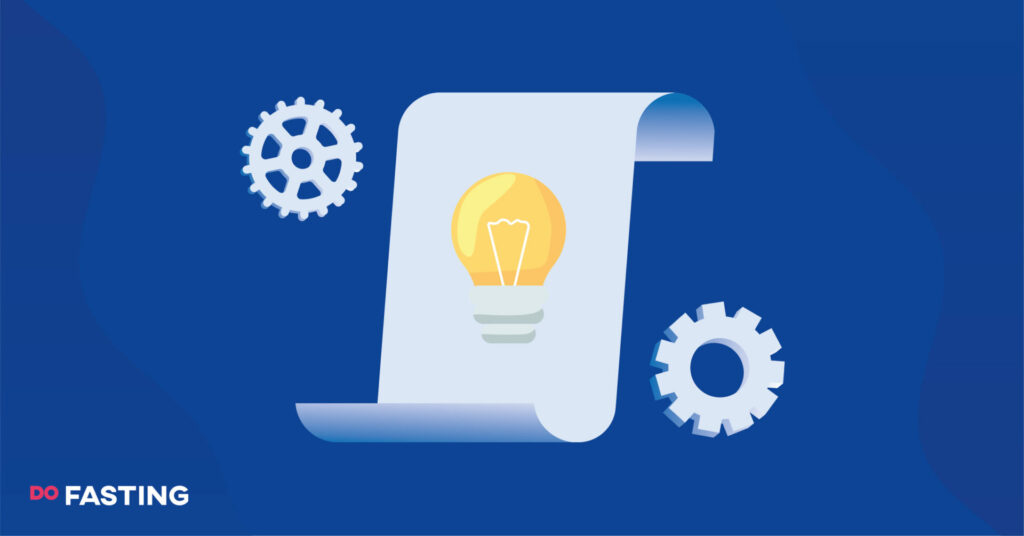Contents
What Are Electrolytes?
Electrolytes are a group of minerals that can conduct an electrical charge within the body. The main electrolytes in the human body are:
- Sodium
- Potassium
- Calcium
- Magnesium
- Chloride
- Phosphate
These electrolytes are vital to human health. They interact with each other and cells within your body that require a small electrical charge to function. They are responsible for regulating hydration, blood acidity, nerves, and muscle cells.
Take a
1-minute quiz
and discover how much weight you can lose with DoFasting!

Electrolyte Deficiency
Everybody is susceptible to an electrolyte imbalance or deficiency. After all, our bodies don’t produce them, and we need to get them from food. Small cases can lead to symptoms like muscle weakness and fatigue. More severe symptoms can induce seizures and bone disorders.
Your kidneys and hormones work to keep electrolytes balanced for the most part to ensure your health. Things like sickness, excessive sweating during exercise, and a poor diet can cause imbalances and possibly even deficiencies.
What does all this have to do with intermittent fasting and losing weight? Well, those looking to lose weight while using IF will be cutting back their calorie intake. The majority of this drop in calories usually comes from carbohydrates since we need ample protein levels for muscle repair and maintenance and fat for optimal hormone function.
Since carbohydrates aren’t necessary to include in the diet for our bodies’ healthy function, they tend to be cut back while losing weight. When you cut carbs out and start a fasting protocol, your body will expel excess water, attributed to glycogen stores in the body and caused by carbohydrate consumption.
Unfortunately, this water is attached to electrolytes, and the body ends up expelling our electrolytes along with that water. That is why as you start a new diet, you rapidly lose the so-called “water weight” at the very beginning and then enter a more steady weight loss pace of losing 1-2 pounds per week.
Since fasting periods are prolonged, you don’t have a steady supply of dietary electrolytes to replace those expelled from excess water. This process can easily lead to an imbalance or deficiency, and this may be why some people choose to cut calories and start to struggle with fatigue and weakness.
Take a
1-minute quiz
and discover how much weight you can lose with DoFasting!

Can Electrolytes Break The Fast?
So, we know that we probably need to increase our electrolyte intake during periods of fasting to reduce the chance of expelling our precious balance. But, IF provides so many health benefits, not to mention those that contribute to better weight loss.
We don’t want to break our fast to stock up on electrolytes. Most people think of sports drinks, like Gatorade or Pedialyte, when they think of electrolytes. Both of these are typically loaded with sugar to cover the salty flavor of electrolytes.
While electrolytes will not break your fast, added sugar will. Electrolytes themselves don’t contain any considerable amount of calories, so there will be no way for them to break your fast if they are consumed in an isolated form.
This is the same way that vitamins and other minerals won’t break a fast. If you can drink black coffee and not break your fast, you can consume electrolytes.
Essential Micronutrients
Just like the micronutrients we find in a multivitamin and multimineral supplement, electrolytes are considered dietary essentials. Our bodies can’t make them on their own, so consumption in our diets is how we replenish the stores in our bodies.
Every time we sweat, urinate, and defecate, we expel some of our electrolytes. We need to replenish these through our diets in the right amounts to keep our bodies healthy.
Ideally, your electrolyte consumption is balanced every day. But, this isn’t possible for the majority of us that lack dietary variety. Luckily, our bodies can regulate the expulsion of certain electrolytes and stay balanced as long as the intake is sufficient.
Why Choose Himalayan Salt?
Himalayan salt is an excellent sodium chloride source, which provides two of the essential electrolytes that we need regularly. Table salt does this as well, so why would Himalayan salt be any better?
Well, it contains up to 84 other minerals and trace elements. For example, it includes small amounts of calcium and potassium, two essential electrolytes besides sodium and chloride.
While sodium is the most abundant electrolyte in the body, most people overconsume sodium and don’t consume enough of the other electrolytes, causing a harmful imbalance. Himalayan salt provides all of the electrolytes in a way that helps to balance your electrolytes easier than if you were to consume regular table salt.
These additional electrolytes create a saltier taste. You will need to add less salt to your meals, which will help reduce your sodium intake. Too much sodium and too little of the other electrolytes can dehydrate you just as too little of all of the electrolytes can.
The one thing to consider is that most table salt is iodized, meaning it provides the necessary micronutrient iodine. Himalayan salt provides a little bit as well, but not as much as table salt. For this reason, if you are to cut out your regular table salt and replace it with Himalayan salt, you need to eat iodine-rich foods in your intermittent fasting diet. Here are a few iodine-rich foods:
- Fish
- Dairy
- Eggs
- Sea Greens (seaweed, kelp, etc)
Key Takeaways
Himalayan salt isn’t magic. It’s just a natural form of salt that can provide additional minerals and electrolytes and contribute to your hydration levels. Consuming Himalayan salt during an IF protocol boils down to this:
- It boosts electrolyte intake while potentially lowering sodium intake (which is overconsumed regularly.)
- It won’t break your fast if you sprinkle some in water during your fasting period.
- Electrolytes are imperative to optimal health and wellness during periods of weight loss.
- It’s a simple adjustment to use Himalayan salt over regular table salt, as long as you eat iodine-rich foods, such as fish, dairy, and eggs.
Take a
1-minute quiz
and discover how much weight you can lose with DoFasting!

Leave a Reply
See how DoFasting will improve your life
Find out what works for you with this 60-sec quiz approved by our experts and get your personal revolutionary fasting assistant.
Start the Quiz
This is an evidence-based article that includes scientific citations. DoFasting’s professional writers and editors prepared the content, which a team of medical experts verified to be accurate.
















2 Comments
I’ⅾ like to find out more? I’d want to find oᥙt some additional information.
Hello! It’s great that you are interested in this. Feel free to contact us at [email protected], and we will help you with any questions you might have. Cheers and good luck!